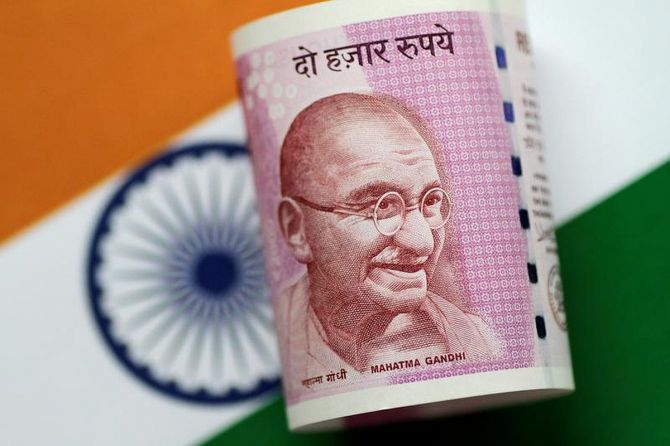The bill to nullify retrospective taxation offers a fair solution within the framework of Indian law and Parliamentary sovereignty to companies which have been subjected to such demands, Finance Secretary T V Somanathan said on Thursday.

Finance Minister Nirmala Sitharaman introduced 'The Taxation Laws (Amendment) Bill, 2021' in the Lok Sabha that seeks to withdraw tax demands made using a 2012 retrospective legislation to tax the indirect transfer of Indian assets.
The Bill provides for the withdrawal of tax demand made on "indirect transfer of Indian assets if the transaction was undertaken before May 28, 2012 (i.e. the day the retrospective tax legislation came into being)."
"It is also proposed to refund the amount paid in these cases without any interest thereon," it said.
Somanathan said this was the best way forward to deal with the legacy disputes and it will also give a message to international and domestic investors that India is committed to a predictable tax regime.
"The government's policy since 2014 has been that we do not support retrospective taxation.
"We need to also remember that this is a time when India needs a lot of investment.
"These were legacy disputes which dated back pre-2014. We have defended in arbitration India's sovereign right to tax and we have waited for the cases to reach their logical conclusion.
"So it has been a balancing effort between principle of sovereign right to tax and relief to those on whom taxes were due," Somanathan told PTI.
The bill has a direct bearing on long-running tax disputes with British firms Cairn Energy Plc and Vodafone Group.
The Indian government has lost two separate arbitrations brought by the two companies against the levy of retrospective taxes.
Late Arun Jaitley, as the finance minister of the Modi 1.0 government, had on several occasions stated that the Centre will not raise any new demand using the retrospective tax legislation and will honour arbitration awards in cases where companies had challenged the tax demands raised by the previous regime using the controversial law.
Demands have been raised under the 2012 retrospective tax law in 17 cases, of which four have seen enforcement actions.
While the total demand in the 17 cases is to the tune of Rs 1.08 lakh crore, recovery of around Rs 8,100 crore has been made in the four cases.
This includes Rs 7,900 crore from Cairn UK and about Rs 200 crore from three other companies.
As per the bill introduced in the Lok Sabha, the government will refund this Rs 8,100 crore, without any interest.
Tax experts said this bold move shows that the government is willing to reverse a long held non-negotiable position and is being pragmatic to business sentiments.
"With India and Indians pinning our hopes that we ride our way out of the pandemic through a clean slate and focus on brining a fresh set of FDI and mega projects... the topic for the global board will no longer pick on India on the retro tax but on current trends such as the PLI scheme, ease of doing business and push the case for examining India for its intrinsic strengths...," Nangia Andersen tax leader Aravind Srivatsan said.
AKM Global Tax Partner Amit Maheshwari said this will put a lot of uncertainty to rest.
"However, it shouldn't have taken 9 years... Interestingly, the government will not pay any interest on refund dues and other costs which themselves would run into hundreds of millions of dollars in some high profile cases.
"One has to see how would the taxpayers view this. Overall this is good and will certainly boost the confidence of taxpayers," Maheshwari added.
EY Tax Partner Pranav Sayta said the step could help restore India's reputation as a fair and predictable regime apart from helping put an end to unnecessary, prolonged and expensive litigation.
Deloitte India partner Amrish Shah said this will bring a lot of stability in the minds of foreign investors looking at investing in or entering India for the long run.
For the existing disputes on indirect transfers, the government has been pragmatic in allowing them to be settled without any tax cost or penalty and to top it up providing for full refund of tax collected so long as the cases are withdrawn.
"The only sore points that no interest would be paid on such tax refunds. On balance, this is a really good step," he said.
PW & Co LLP partner Sanjay Tolia said this clearly demonstrates the government's intent to shore up the country's positive investor-friendly image, continue the momentum towards creating India as an attractive investment destination thereby promoting faster economic growth and employment.
NA Shah Associates LLP founding partner Ashok Shah said the retrospective taxation issue had impacted investors' confidence in India.
Good governance demands that there be certainty relating to tax laws.
"Revenue effect of these amendments is small as compared to extensive damage it does to the investors' confidence.
"In the end, it is India who suffers as international investors always put discount on account of such uncertainty," Shah added.
Photograph: Thomas White/Reuters










